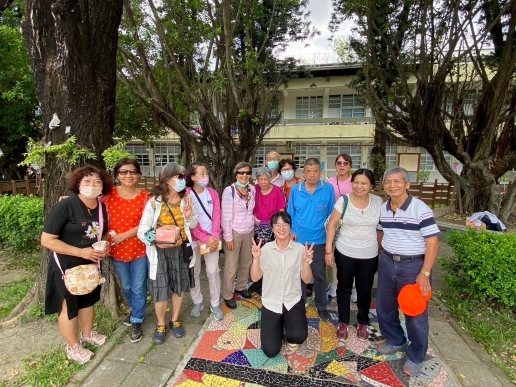(Taiwan Immigrants’ Global News Network) – [Taiwan Immigrants Global News Network] Cooperated with IC Voice FM97.5 [New Life Registration-We are in Taiwan] to launch a series of exciting stories about new immigrants in Taiwan. This episode invites Cambodia’s second-generation new immigrant Chen Ching-Hua (陳靜華). While she was studying in university, she participated in the "New Immigrant Children Overseas Training Program" (新住民子女海外培力計畫) of the National Immigration Agency of the Ministry of the Interior (政部移民署) and returned to Cambodia with her mother. During that journey, she learned about the cultural differences between Taiwan and Cambodia. She has many special memories and experiences. When it comes to Southeast Asia, people often think of "sour" and "spicy", but Chen Ching-Hua returned to her mother's hometown and felt that Cambodia was "sweet". She found that the local people were accustomed to adding sugar to any food, which was especially different. [Taiwan Immigrants Global News Network] also translated this episode into 5 languages including Chinese, English, Vietnamese, Thai and Indonesian, allowing more readers and listeners to share Chen Ching-Hua’s wonderful story.
1006.jpeg)
Chen Ching-Hua reminded the second generation of new immigrants to participate in overseas training. Photo/Provided by Chen Ching-Hua
Chen Ching-Hua enthusiastically told the second-generation students of new immigrants that if you want to sign up for the "New Immigrant Children’s Overseas Training Program", it is recommended that you first take notes of your curiosity about your mother’s hometown. When you return to your mother’s hometown, you can explore these items. Chen Ching-Hua mentioned that this overseas training program is centered on five aspects, namely "family connection, cultural tour, food exploration, language exchange, and work exchange". These can be used as guides in a plan book, which can help with the children’s training program.
1006.jpeg)
Chen Ching-Hua has many relatives in Cambodia, and she feels like a big sister. Photo/Provided by Chen Ching-Hua
For Chen Ching-Hua, what made a deep impression on her about that trip was that she has many relatives in Cambodia, with many cousins younger than her which made her feel like a big sister with responsibility. But because she does not know the Cambodian dialect, she has no way to communicate with her relatives, and they need to express their meaning through actions. In addition, the specialty food that Chen Ching Hua misses the most is the "Cambodian hot and sour soup", which is slowly boiled on a stove using firewood. She once met a new Cambodian immigrant in Taiwan, who prepared "Cambodian style hot and sour soup" for Chen Ching-Hua to try, and the taste made her feel warm.
1006.jpeg)
Chen Ching-Hua hopes that Taiwanese society will be more friendly and achieve cultural equality. Photo/Provided by Chen Ching-Hua
Regarding the process of the recognition of second-generation new immigrants, Chen Ching-Hua mentioned that when she was in elementary school, because more than half of the students in class are second generation new immigrants, they shared a feeling of belonging to each other. Even if everyone does not deliberately discuss this topic, the students have a tacit understanding that they are all second-generation new immigrants. Therefore, Chen Ching-Hua did not encounter the stage of self-identity and self-exploration until she entered university. She even had "self-doubts" because she did not know the Cambodian language, but it was also because she did not have the opportunity to get to know her mother's hometown culture. She hoped that Taiwanese society will be more friendly and will achieve cultural equality in the future.
1006.jpeg)
The Pingtung Good Women's Association launched the publication "You Are Not Alone". Photo/Provided by Chen Ching-Hua
Chen Ching-Hua is a fresh graduate of the Department of Social Work of the National Pingtung University of Science and Technology (屏東科技大學社工系) and is a freshman in society. She currently holds an administrative position in the Pingtung Good Women’s Rights Development Association (社團法人屏東好好婦女協會). The association mainly provides human rights protection and promotes cultural equality. She has been a volunteer in the association since she was studying in the university, and she hopes to be able to continue to serve the new immigrants in the region in the future. In addition, the Pingtung Good Women’s Rights Development Association has launched the publication "You Are Not Alone" (你不孤單), which will be published quarterly, mainly to share the voices of the new immigrants and their second-generation, and the rights and interests of migrant workers. The contents are diverse and interesting, and are also translated into three languages (Vietnamese, Indonesian, Thai), so new immigrants can read in their native language. Welcome to search "Nanyang Atang International Family, You Are Not Alone" (南洋阿緱 國際家庭 你不孤單) on Facebook.

1006.jpeg)





